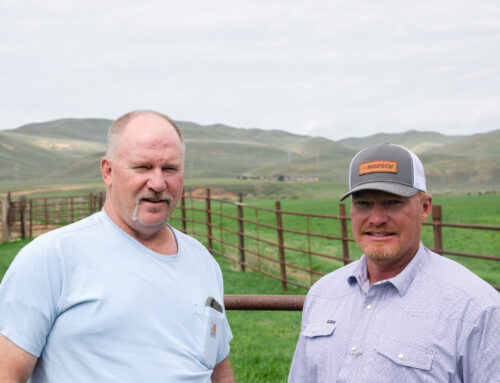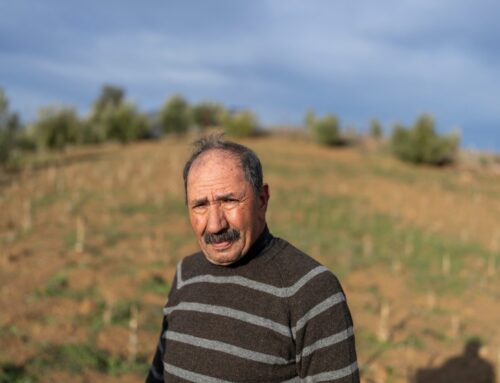Mayor Brandon Johnson pushes environmental equity law after feds alleged racist policies
April 14, 2025
This coverage is made possible through a partnership between WBEZ and Grist, a nonprofit environmental media organization.
Mayor Brandon Johnson is pushing an ordinance to change how and where polluting businesses are allowed to open nearly two years after the city settled a civil rights complaint that alleged a pattern of discrimination that led to health threats in low-income communities of color.
If passed into law, the measure would provide a significant change in the way heavy industry is allowed to locate and operate in Chicago. For instance, it would require manufacturers, scrap operations, warehouses and other businesses to hold community meetings to explain the impact on air quality and traffic. The city would evaluate the potential impact on public health, particularly in communities that already have existing sources of pollution.
Low-income areas on the South Side and West Side would get added attention because they’ve historically been saddled with more pollution than other areas. A city “environmental justice” board would be created.
The proposed ordinance is expected to be introduced at the City Council’s meeting Wednesday.
In a binding agreement with President Joe Biden’s administration, the city promised to offer a legal fix to the longtime practices of putting the same harmful, polluting businesses almost exclusively in Black and Latino communities.
While President Donald Trump has dismantled government programs monitoring so-called environmental justice issues, and even directed his Department of Justice to challenge state climate laws, Biden was keenly interested in reversing the health threats to poor communities. Now, it’s up to Mayor Johnson to finish the job and protect public health.
“Nobody wants to be sick,” said Cheryl Johnson, an environmental activist on the Far South Side who has been advocating for pollution protections for almost 40 years.
The Chicago ordinance is named after Johnson’s mother, Hazel Johnson, who started fighting in the 1970s for the health of her neighbors at the Altgeld Gardens public housing community, which was literally surrounded by a “toxic doughnut” of polluters.
Cheryl Johnson runs People for Community Recovery, an organization started by her mother, with the same mission to protect human health.
“The most important thing – and the only thing that we get is good health or bad health,” Johnson said. “That’s what my mother fought for.”
The federal government’s interest, which was spurred by a complaint from community groups in August 2020 related to the planned move of the General Iron scrap-metal operation to the Southeast Side. The city eventually rejected the scrap operation’s bid to open, which is being contested in court.
The city effort is spearheaded by Mayor Johnson’s top environmental official, Angela Tovar.
Tovar grew up on the heavily industrial Southeast Side, which has some of the worst air quality in Chicago. She witnessed two of her siblings live with severe cases of asthma. She said she understands the health concerns of residents because she saw the effects as a child. To her, the proposed law is personal.
“I also understand what it’s like to live in a family that suffered the health consequences of pollution,” Tovar said.
The civil rights investigation of the city by the U.S. Department of Housing and Urban Development concluded that Chicago long put polluters in low-income areas while sparing white, affluent neighborhoods. General Iron was moving from its longtime home in Lincoln Park to East 116th Street along the Calumet River to make way for a multibillion-dollar real estate development on the North Side.
Former Mayor Lori Lightfoot signed the agreement with HUD hours before she left office. Johnson vowed to follow the agreement and said in September 2023 that an ordinance proposal would be offered in short order.
But weeks and months turned into years and community, health and environmental advocates complained that the mayor was slow walking his promises.
Not all community groups are happy with the proposal. Theresa McNamara, an activist with the Southwest Environmental Alliance, said at a recent public meeting she didn’t think the measure would go far enough and called it a “weak piece of crap” based on her understanding of the main points.
Business and labor groups are also likely to weigh in.
Experts said a law’s success would depend on the city’s will to execute and enforce it.
“There’s a lot of states and even cities that have assessment tools, but the question is, what do you do with those?” said Ana Baptisa, an environmental policy professor at The New School in New York.
A law in Newark, New Jersey, she said hasn’t delivered on its promise to rein in polluting industries.
Search
RECENT PRESS RELEASES
Related Post



